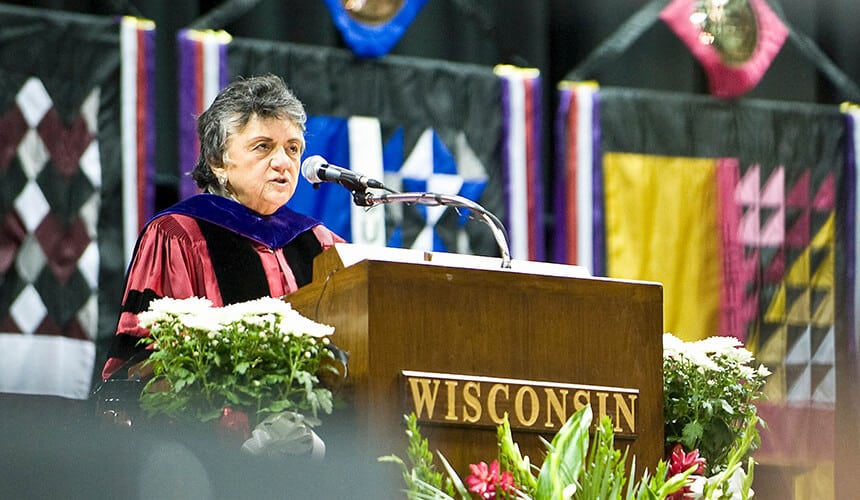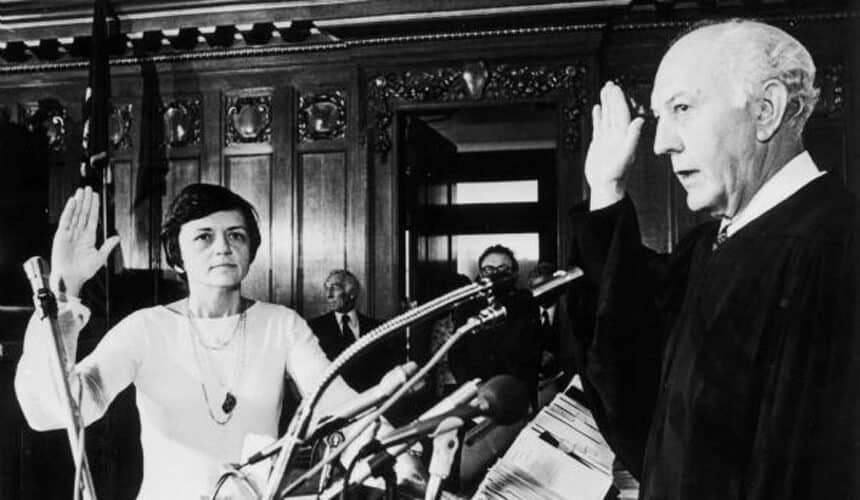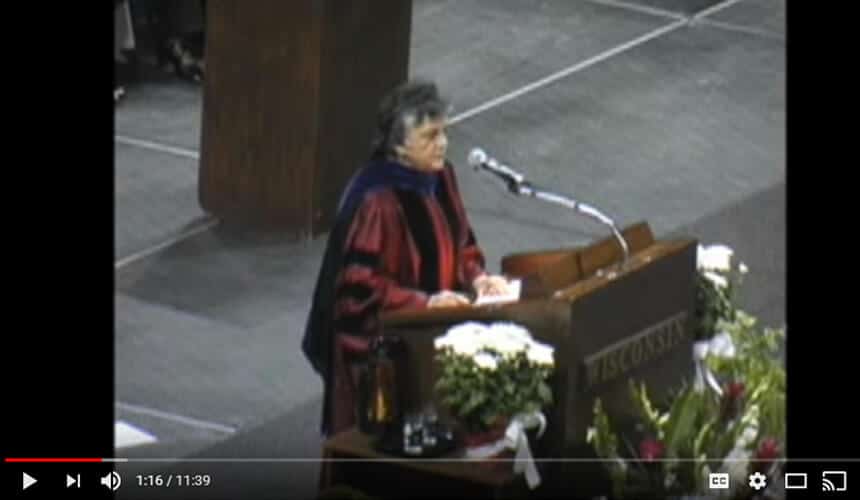Shirley Abrahamson
High Court Pioneer Passes Test of Time
The day when Shirley Abrahamson DJS1962 became the Wisconsin Supreme Court’s longest-serving justice in 2013, folks celebrated with pastries and good humor.
“It’s just living. That’s good, right?” Abrahamson joked with reporters.
Far more than just living, Abrahamson’s career was a testament to her pioneering drive at a time when the high court was often fractured by politics and personalities.
Abrahamson, formerly a professor at the UW Law School, was named to the court in 1976 by Governor Patrick Lucey BA1946 and was elected three times since, most recently in 2009.
“We women judges of the 1970s and 1980s, by definition, did not accept the status quo in our lives,” she told a group of female judges in 1980. “We went to law school and proved our willingness to be different, to think and act outside the traditional, accepted mold, to take our own path.”
The combative jurist led the liberal wing on the high court, which in recent years has had a conservative majority. Her decisions were often sharply worded in opposition to the majority.
On the legality of a state voter ID law, she wrote, “Today, the court follows not James Madison — for whom Wisconsin’s capital city is named — but rather Jim Crow, the name typically used to refer to repressive laws to restrict rights, including the right to vote of African Americans.”
She served as chief justice from 1996 until 2015, when a Republican-backed constitutional amendment allowed the court to choose its chief justice, instead of awarding the honor to its most senior member.
Abrahamson preached the judiciary’s importance : “You rely on judges to be fair, neutral, impartial and non-partisan – judges who make decisions based on their understanding of the law, not on the basis of personal whims or will, prejudice or fear.”
In a 2008 UW–Madison commencement speech, Abrahamson told a story about former U.S. Supreme Court Justice Oliver Wendell Holmes at a train station trying to figure out which city he was supposed to visit.
She told graduates, “The question of where you are supposed to be going should occupy you all of your life.”
 42° F
42° F

